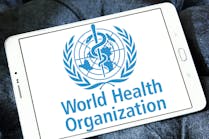Landmark patient registry uses predictive genetics to prevent breast cancer
Medneon, a digital health company, has introduced what they are calling in a new release, a groundbreaking clinicogenetic patient registry that will allow researchers to investigate whether identifying high-risk individuals and managing their genetic mutations over time can prevent hereditary breast cancer.
The iGAP (Informed Genetic Annotated Patient) Registry, which the company will debut at the meeting of the American Society of Breast Surgeons (ASBrS), April 30 to May 5 in Dallas, includes breast cancer patients, at-risk family members, and other high-risk individuals. Researchers will enlist at least 10,000 women in 2019 with the registry eventually growing to include other hereditary health conditions.
A recent study by Peter Beitsch, MD et al. in the Journal of Clinical Oncology showed that nearly half of breast cancer patients with a genetic mutation are missed by current testing guidelines. The study prompted ASBrS to update its guidelines, recommending now that all patients diagnosed with breast cancer be offered genetic testing to check for inherited mutations. It is estimated that 50 to 80 of at-risk people aren’t tested genetically in part because they do not meet the criteria of current testing guidelines and may lack insurance coverage for testing.
Medneon explained that iGAP, an IRB-approved database, will capture information regarding breast cancer risk assessment, genetic testing utilization, and the impact of genetic information on treatment practices and patient outcomes.
“Now that we’re moving toward offering genetic testing to the majority of breast cancer patients, we want to take it a step further to include women who don’t have breast cancer yet, but who may have a high risk of developing it based on certain risk assessment models,” said Dr. Beitsch, a surgical oncologist and iGAP principal investigator in the company’s news release.
A key component of the registry, the company explained, will be correlating an individual’s genetic results with clinical and patient-reported outcomes – considering a patient’s clinical history and following them over time to assess how the genetic results influenced their risk and medical management decisions. This will also create ongoing communication with registry participants if their risk of developing breast cancer changes as research evolves.
“The easiest way to identify these additional high-risk women is cascade testing their unaffected relatives,” said Dr. Rakesh Patel, an oncologist and iGAP co-principal investigator. “We want to see if this will provide actionable insights that could prevent the disease altogether, or at least enable detection at much earlier stages.”





